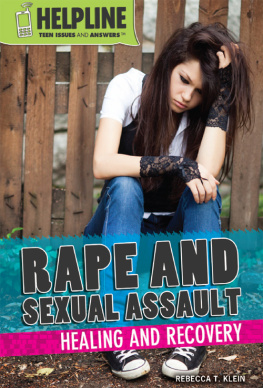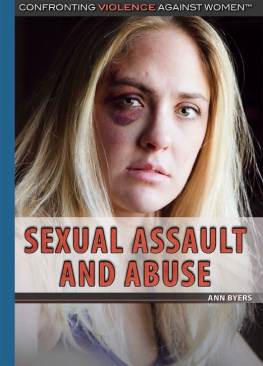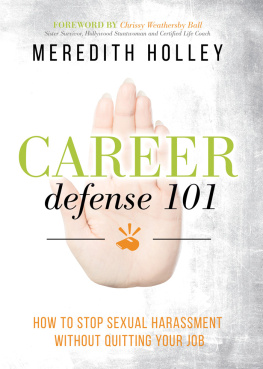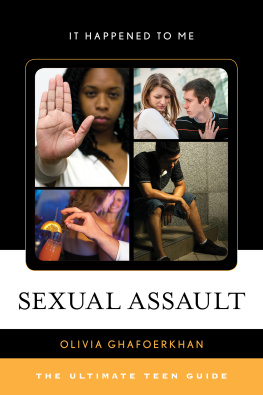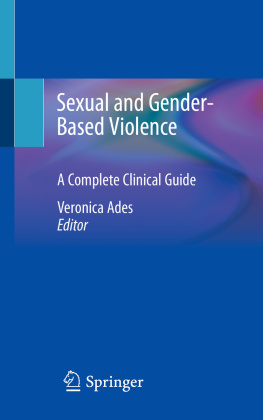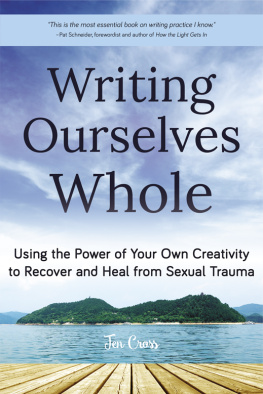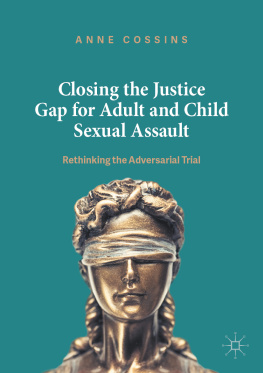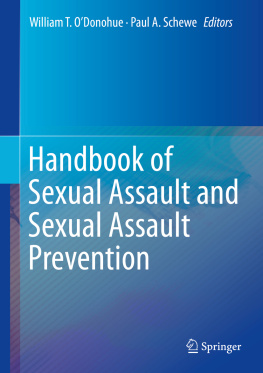PUTTING TRIALS
ON TRIAL
PUTTING TRIALS
ON TRIAL
Sexual Assault and the Failure
of the Legal Profession
ELAINE CRAIG

McGill-Queens University Press 2018
ISBN 978-0-7735-5277-7 (cloth)
ISBN 978-0-7735-5300-2 (ePDF)
ISBN 978-0-7735-5301-9 (ePUB)
Legal deposit first quarter 2018
Bibliothque nationale du Qubec
Printed in Canada on acid-free paper that is 100% ancient forest free (100% post-consumer recycled), processed chlorine free
This book has been published with the help of a grant from the Canadian Federation for the Humanities and Social Sciences, through the Awards to Scholarly Publications Program, using funds provided by the Social Sciences and Humanities Research Council of Canada.

We acknowledge the support of the Canada Council for the Arts, which last year invested $153 million to bring the arts to Canadians throughout the country. Nous remercions le Conseil des arts du Canada de son soutien. Lan dernier, le Conseil a investi 153 millions de dollars pour mettre de lart dans la vie des Canadiennes et des Canadiens de tout le pays.
Library and Archives Canada Cataloguing in Publication
Craig, Elaine, author
Putting trials on trial : sexual assault and the failure of the legal profession / Elaine Craig.
Includes bibliographical references and index.
Issued in print and electronic formats.
ISBN 978-0-7735-5277-7 (cloth). ISBN 978-0-7735-5300-2 (ePDF). ISBN 978-0-7735-5301-9 (ePUB)
1. Trials (Rape) Canada. I. Title.
HV6569.C3C73 2018 | 345.7102532 | C2017-906267-0 |
C2017-906268-9 |
This book was designed and typeset by Peggy & Co. Design Inc. in 10.5/14 Warnock.
For Kim
Contents
Acknowledgments
I have great respect for the challenging work done by the legal professionals who practise in the criminal justice system. In conducting research for, and writing, this book I gained a sense of the difficulty faced by those who work in a context that forces them to confront and engage with the sexually harmful behaviour of others on a regular basis. Although a modest impact in comparison, I can relate. Days and months spent reviewing cases that detail these sexual harms, and poring over transcripts documenting other peoples pain, takes a particular kind of toll. Sexual assault lawyers and judges do work that is critically important and deeply taxing.
Of course, the cost to legal professionals who work in, or study, this area of law pales in comparison to the trauma imposed upon too many of those who have relied upon our legal system to respond to violations of their sexual integrity. It seems facile, but nevertheless important, to acknowledge their ordeals.
In pursuing this project, I have benefited significantly from the generosity and support of many. There are several individuals in particular whom I would like to acknowledge.
I am indebted to the community of scholars, professionals, and experts who read parts, or all, of this work and whose insightful feedback indubitably added to the quality of this project. Thank you to Lisa Dufraimont, Elizabeth Sheehy, Constance Backhouse, Ruthann Robson, Richard Devlin, Ron MacDonald, Alice Woolley, Steve Coughlan, The Honourable Justice Thomas Cromwell, Marlane Brooks, and Jocelyn Downie. Thank you also to Justice David Cole, with whom numerous exchanges over the years have enhanced my understanding of several of the issues addressed in this book. I am deeply grateful to David Tanovich for his generous and constant support.
I would also like to acknowledge the defence lawyers and Crown attorneys who generously allowed me to interview them. These individuals were unstinting with both their time and their insights. I learned an extraordinary amount from speaking with them.
I am indebted to my generous and wise colleagues, Constance MacIntosh, Sheila Wildeman, Debra Parkes, Sonia Lawrence, and Joana Birenbaum, who, having read a draft of the full manuscript, then spent a full day workshopping the book.
Thank you to Kacie Oliver, whose meticulous and tireless research support improved this book immeasurably.
The research for this book would not have been possible without the financial support I received through an Insight Grant from the Social Sciences and Humanities Research Council of Canada. I also received support from the Schulich School of Law. Thank you to Dean Camille Cameron.
I also want to acknowledge the support and brilliance of my family, which is difficult to do in words. I am so grateful for my sons, Coltrane and Beckett: your energy and delight at the world and the people in it give me motivation and inspiration. May you inherit a society that treats women better. And most of all Kim, whose unfailing support, encouragement, good humour, and wisdom are without equal, and to whom this book is dedicated: you are my everyday light, my constant counsel and advocate, my deepest sense of connection in, and to, the world thank you.
Parts of this book are taken from several articles I have published. This material appears throughout the book with the generous permission of previous publishers. Two paragraphs in originally appeared in Elaine Craig, The Ethical Obligations of Defence Counsel in Sexual Assault Cases, Osgoode Hall Law Journal 51, no. 2 (2014): 427.
PUTTING TRIALS ON TRIAL
CHAPTER 1
Sexual Assault and the Legal Profession
Imagine a society one that purports to be a rule of law society in which one segment of the population regularly engages in harmful acts of sexual violation against another segment of the community with almost complete legal immunity.
Canada is such a society.
Less than one percent of the sexual assaults that occur each year in Canada will result in any form of legal sanction for those who perpetrate these violations of anothers sexual integrity. This is a stunning indictment of our legal response to sexual harm. Is this fear well-founded?
The sexual assault trial process in Canada has received significant scrutiny in the past few years as a consequence of the public attention focused on cases such as the prosecution of former Canadian Broadcasting Company radio host Jian Ghomeshi for his alleged sexual assaults on numerous women, the failings of Judge Greg Lenehan in the Halifax taxi driver case, and the judicial disciplinary proceedings against former Justice Robin Camp for his conduct in a sexual assault trial in Alberta. The current volume of public commentary, social media activity, expert opinion from legal professionals, and media coverage on issues of sexualized violence is unprecedented. Perhaps most unusually, a good deal of this attention is focused on the treatment and experiences of the women who serve our justice system as complainants in the prosecution of those accused of sexual violence.
The personal distress that the complainants in Ghomeshi, and in the case involving Justice Camp, reported as a consequence of their involvement in those trials was well publicized and is discussed later in this book. For now, consider how a few of the other women who performed this role in the criminal justice process in 2016 described their experience.
Following a 2016 trial in Nova Scotia, in which her former boyfriend was convicted of sexually assaulting her, the complainant reported to the CBC that her experience with the judicial system was punishing.
Next page

